League Of Olympic Swim Legends: Roland Matthes Tops The 100m Backstroke Podium With Peirsol & Kealoha
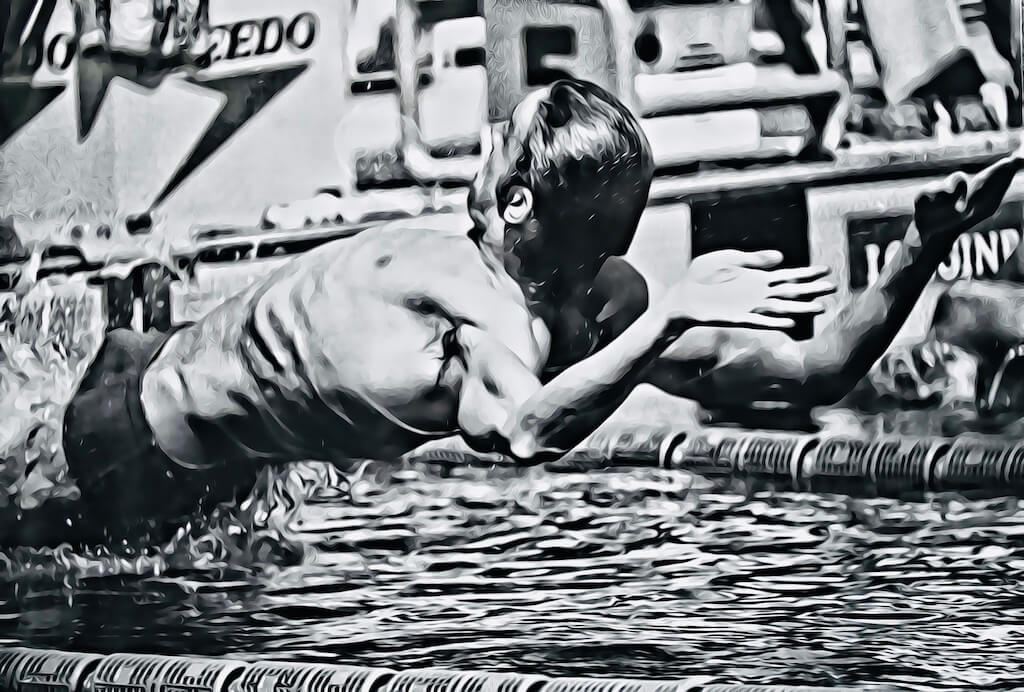
What would have unfolded had Tokyo 2020 gone ahead as planned this week – and where would it all have fit in the thread of Olympic swim legends like Roland Matthes, Aaron Peirsol, Warren Kealoha? To mark the eight days over which the Tokyo 2020 Olympic Games would have unfolded had the coronavirus pandemic not forced postponement, the team at Swimming World is filling the void with a Virtual Vision Form Guide and League of Olympic Swimming Legends.
Day 2, event 3 – the Rolls Royce of backstroke…
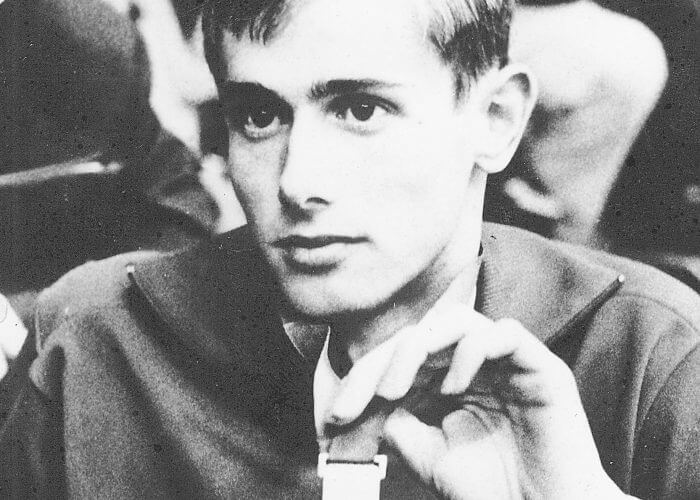
Roland Matthes – Photo Courtesy: International Swimming Hall of Fame (ISHOF)
Men’s 100m Backstroke
The Podium
- Roland Matthes (GDR)
- Aaron Peirsol (USA)
- Warren Kealoha (USA)
The Other Finalists (Listed Alphabetically):
- Adolph Kiefer (USA)
- Lenny Krayzelburg (USA)
- John Naber (USA)
- Jeff Rouse (USA)
- David Theile (AUS)
- Our Lane 9* goes to the 1928 Champion, one of just two who won the crown in World record time but did not make the top 8 straight off – and becoming Olympic champion when you learned to swim in the East River has got to be worth a line and a lane…
- George Kojac (USA)
* – in our series, we will use Lane 9 to add an athlete whose story reflects extraordinary situations of different kinds, including being deprived by doping or political decisions or, indeed the program, as well as simple facts such as “he/she was the only other title winner who claimed gold in a WR but didn’t make out top 8 on points”
All-Time Battle Of Olympic Swim Legends Goes To Roland Matthes
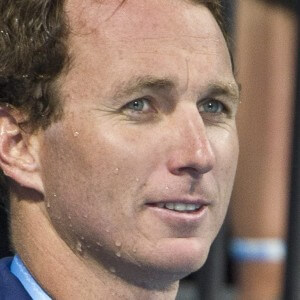
Aaron Peirsol – Photo Courtesy: Peter H.Bick
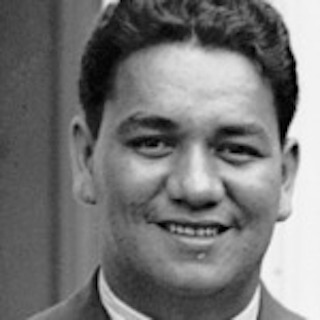
Warren Keoloha – Photo Courtesy – ISHOF
Some showdowns rate off the scale, a Perfect 10 not a sufficient reward. This scenario was the case in the men’s 100 backstroke, where East Germany’s Roland Matthes and the United States’ Aaron Peirsol squared off for all-time bragging rights. In the end, it was Matthes, dubbed the Rolls Royce of backstroke swimming, who claimed gold, as he narrowly fought off his younger foe.
The excellence produced by Matthes and Peirsol was sensational, as each man was a two-time Olympic champion. Matthes mined gold in 1968 and 1972 and proved his longevity with a bronze medal in 1976, while Peirsol doubled in 2004 and 2008. The difference in Matthes claiming Legends gold was his extra medal, along with his seven-to-six advantage in world records.
Always calm and cool, Peirsol easily could have pursued a fourth Olympiad, his Games debut in 2000 having produced silver over 200m when he was just 17, but with nothing left to prove, he chose to walk away officially in early 2011 after winning gold in the 100 backstroke at the 2010 Pan Pacific Championships.
As much as the battle for the top spot was epic, jockeying for the bronze medal was equally entertaining, with American Warren Kealoha landing on the podium. The 1920 and 1924 Olympic champion bested Australian double champion David Theile (1956/1960) for the final medal, with the United States’ John Naber pushing for a medal, too.
Kealoha set four world records during his day and his inclusion on the podium is an example of the Swimming World scoring system being designed to not ignore athletes from the early 1900s.
Roland Matthes – The First Games – Dominance Begins:
Olympic Swim Legends – Our Winner’s Winning Ways:
Roland Matthes – Back-To-Back Dominance
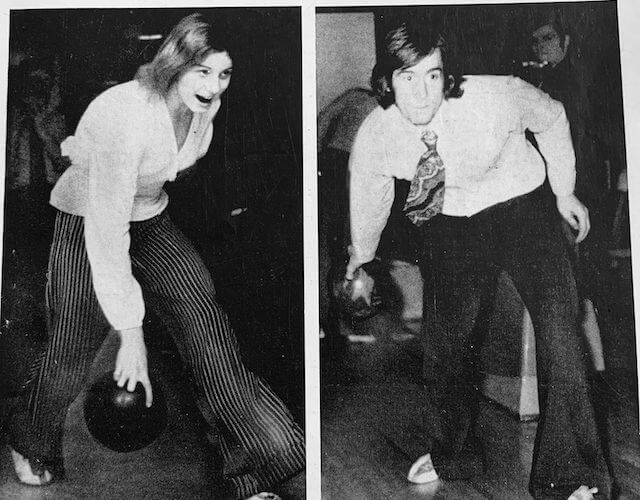
Kornelia Ender and Roland Matthes, GDR sportspeople of the year in 1973, would marry and have a daughter together before they parted company after two years – Photo Courtesy: NT/CLArchive
1972 Munich – Men 100m Backstroke: Athletes: 39 Nations: 27
- 56.58or Roland Matthes GDR
- 57.70 Michael Stamm USA
- 58.35 John Murphy USA
- 58.48 Mitchell Ivey USA
- 59.50 Igor Grivennikov USA
- 59.80 Lutz Wanja GDR
- 59.93 Jurgen Kruger GDR
- 1:00.41 Tadashi Honda JPN
Date of final: August 29, 1972
Roland Matthes (GDR) gave warning of what was to come when, aged 16, on March 23, 1967 in Magdeburg, he broke his first two European records, of 59.8sec (the first European to race inside the minute) in the 100m backstroke, on his way to a 2:11.2 over 200m. On September 21 the same year, he set his first world record, shaving 0.7sec off American Charles Hickcox’s 100m global mark, in 58.4, and then, on November 8, just shy of his 17th birthday, he inflicted another wound on the same swimmer by carving 1.5sec off the world 200m record, in 2:07.9.
Roland Matthes would not be beaten in an international backstroke race until 1974 and remains the greatest backstroke swimmer in history. He passed away in December 2019, the obituary published here at Swimming World followed by a moving tribute from John Naber. Naber also revealed how the two great backstroke swimmers had sat together watching the Rio 2016 final on the couch at Naber’s home.
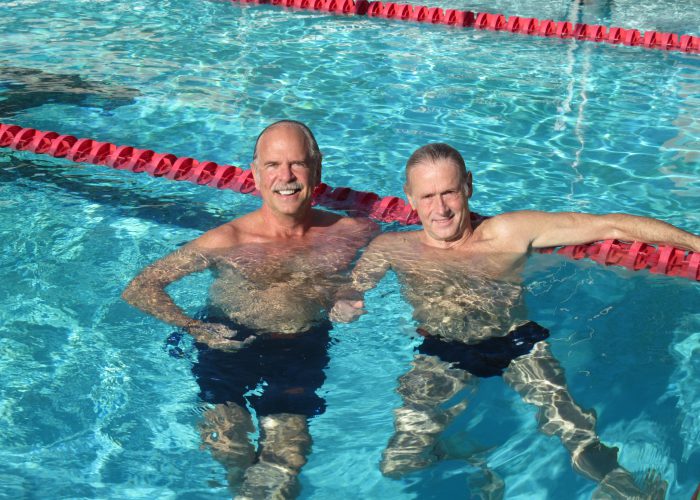
John Naber and Roland Matthes – Photo Courtesy: John Naber

John Naber and Roland Matthes sharing a bite during a visit between the two backstroke legends and friends who sat on Naber’s couch watching 2016 Olympic backstroke finals together 40 years and 20 days after their own poignant 100m final in 1976 – Photo Courtesy: John Naber
In the four years in between claiming the 100m and 200m titles at the 1968 Games in Mexico and the opening of events at the 1972 Games in Munich, Matthes had improved the world record in the 100m four times and in the 200m five times.
In the heats of the 100m in Munich, Matthes held back, content it seemed to watch Michael Stamm – who with Gary Hall was one of only two men, both Americans, to interrupt a string of 16 world records that fell to the East German – and Mitch Ivey set the pace: Stamm claimed the Olympic record, in 58.63 (at the first Games to use official electronic timing) in the fourth heat and Ivey, second to Matthes in 1968, improved that to 58.15 in the fifth heat. Ivey then blasted a 57.99 in the second semi-final. Matthes progressed with times of 1:00.01 and 58.44.
The final was a different matter: Matthes turned first in 27.41, 0.06sec up on Stamm, with Ivey on 27.53 and a third American, John Murphy, fourth on 27.78. Out of the turn the race was won as Matthes increased his tempo and left his rivals lagging. The crown was retained in an Olympic record of 56.58, just 0.28sec shy of his own world record. Stamm took silver in 57.70 and Murphy, having passed Ivey in the closing metres, claimed bronze.
Four days later, Matthes would become the first man to retain both the 100m and 200m titles. No other swimmer has yet matched that achievement.
Before Beijing 2008, only three men had ever retained a backstroke title: Warren Paoa Kealoha (USA, 1920-1924, 100m), David Theile (AUS, 1956-1960, 100m) and Matthes (both 100m and 200m). Aaron Peirsol joined the club in 2008 in World-record time.
Matthes’ claim to being the greatest backstroke swimmer in history includes the following accolades: he retained both the 100m and 200m Olympic titles (1968-72), the only swimmer ever to do so, he won three world titles (100m and 200m, 1973 and 100m, 1975), retained the European titles in both events (1970, 1974) and established 16 world records over the 100m (7) and 200m (9) events between 1967 and 1975. He also helped medley teammates to claim the only two relay world records to fall to East German men.
Secret-police documents would later reveal a state-doping programme had been behind the GDR success story of the 1970s and 1980s. However, in a 2006 confession to Craig Lord (current Editor of Swimming World), Dr Helge Pfeiffer, one of the senior sports scientists who knew about the doping programme, revealed that Matthes’s coach, Marlies Grohe-Geissler, was the only GDR coach for whom refusal to comply with the Stasi-run drugs regime did not mean instant dismissal. Grohe-Geissler maintained her strong opposition to the use of performance-enhancing substances and after Matthes had retired did not figure highly in the GDR regime that took women’s swimming by storm from 1973 onwards.
Meanwhile, Ivey, locked out of the medals by 0.13sec, went on to be a coach. And not a good one, it would turn out: USA Swimming confirmed in December 2013 that Ivey had been banned for life by for sexual abuse.
He is listed on the USA Swimming banned for life and his ban was first reported by the Orange County Register.
Encore – Munich 1972 Highlights Showing Roland Matthes matching his World 100m backstroke leading the GDR medley relay towards silver behind a USA quartet with Mark Spitz:
Another great 100m backstroke race In History
The Reign Of Aaron Peirsol, At The Double
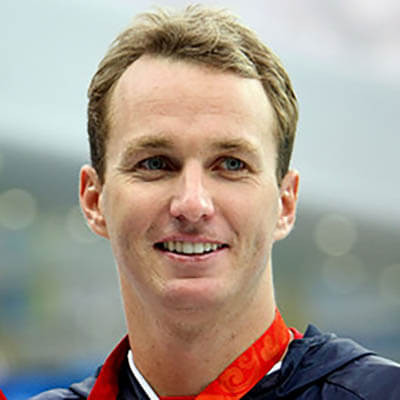
Aaron Peirsol – Photo Courtesy: Jed Jacobsohn
2004 Athens – Men 100m Backstroke: Athletes: 45; Nations: 39
- 54.06 Aaron Peirsol USA
- 54.35 Markus Rogan AUT
- 54.36 Tomomi Morita JPN
- 54.38 Lenny Krayzelburg USA
- 54.52 Matthew Welsh AUS
- 54.61 Laszlo Cseh HUN
- 54.63 Steffen Driesen GER
- 55.27 Marco di Carli GER
- Date of final: August 16, 2004
Between 2000, when a 17-year-old American claimed the silver medal in the Olympic 200m backstroke final won by teammate Lenny Krayzelburg, and the opening of the Games in Athens 2004, Aaron Peirsol, coached by Eddie Reese at Texas Longhorns in his college days and beyond, had matured into the fastest backstroke specialist the world had ever known.
World 200m champion in 2001 and double world champion in 2003 (100m and 200m), he had lowered the world record in the 200m twice. There was much more to come in the years ahead.
In the final of the 100m in Athens, Matt Welsh (AUS) winner of silver and bronze medals in the 100m and 200m respectively at the 2000 Games in Sydney, blasted down the first length in 25.88, 0.09sec inside the world-record pace of Krayzelburg, the 2000 champion in both the 100m and 200m.
Peirsol turned in 26.10, with the defending champion on 26.38. Welsh maintained his flow until 75m, by which point Peirsol had caught him on the way to the third-fastest last 50m in the race, of 27.97, and the crown in 54.06. The fastest homecoming split belonged to Markus Rogan (AUT), out in 26.88 for last place at the turn but back in a blistering 27.47, for the silver medal in 54.35. The second-fastest homecoming split was a 27.64 from Tomomi Morita (JPN), who claimed bronze just 0.02sec ahead of defending champion Krayzelburg in the closed battle for the spoils beyond gold in the history of the 100m backstroke back to 1904.




Amazing how much everything has changed and evolved